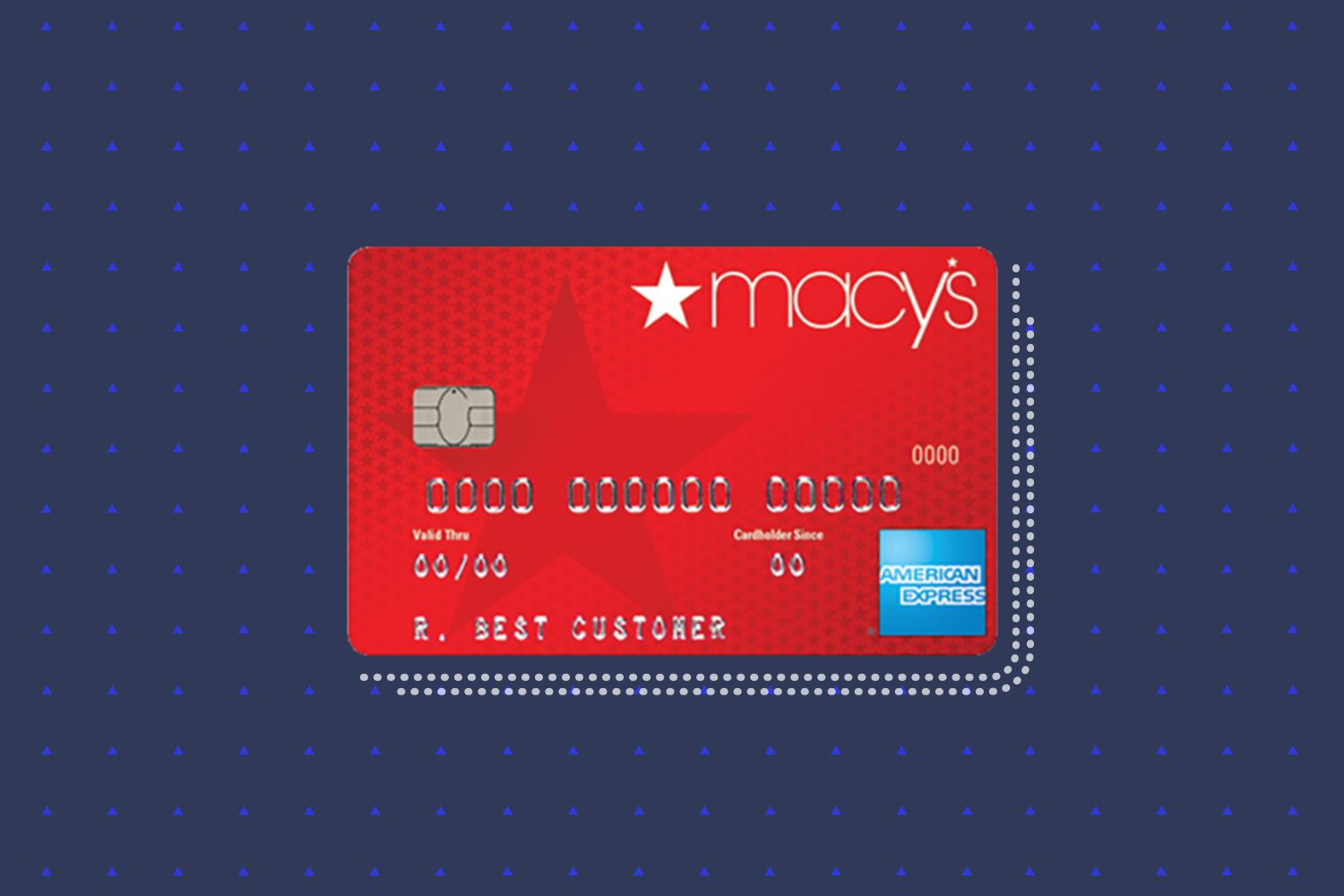

Finance
How Often Should I Apply For A New Credit Card
Modified: December 29, 2023
Discover the optimal frequency to apply for a new credit card and enhance your financial management skills. Explore the best approach for credit card applications in the world of finance.
(Many of the links in this article redirect to a specific reviewed product. Your purchase of these products through affiliate links helps to generate commission for LiveWell, at no extra cost. Learn more)
Table of Contents
Introduction
Are you considering applying for a new credit card? With so many options available, it can be tempting to constantly seek out new cards with enticing rewards and benefits. However, before diving headfirst into the application process, it’s important to understand the factors to consider and the potential impact on your credit score.
Applying for a new credit card can be a valuable financial tool if done responsibly. It can help you build credit history, earn rewards, and gain access to exclusive perks. However, it can also be a double-edged sword if not approached with caution.
In this article, we will explore the factors you should consider before applying for a new credit card, weigh the pros and cons, and discuss how often you should apply for a new card. We will also delve into the impact multiple credit card applications can have on your credit score and provide strategies to maximize your credit card applications.
Before we dive into the details, it’s important to note that while credit cards can be advantageous, they are not suitable for everyone. If you struggle with managing debt or have a history of late payments, it may be wiser to focus on improving your financial habits before considering additional credit cards.
Now, let’s explore the factors that should guide your decision-making process when it comes to applying for a new credit card.
Factors to Consider Before Applying for a New Credit Card
Before you rush into applying for a new credit card, it’s important to take a step back and evaluate a few key factors. These factors will help ensure that you make an informed decision and choose a credit card that aligns with your financial goals and needs. Let’s explore these factors in detail:
- Credit Score: Your credit score plays a crucial role in determining your eligibility for a credit card and the terms you receive. The higher your score, the more likely you are to be approved for a card with favorable terms and lower interest rates. Before applying for a new card, check your credit score and assess whether it meets the criteria of the cards you’re interested in.
- Interest Rates and Fees: Credit cards come with various interest rates and fees, such as annual fees, balance transfer fees, and foreign transaction fees. Consider your spending habits and how you plan to use the card to determine whether the interest rates and fees align with your financial strategy.
- Rewards and Benefits: Many credit cards offer rewards programs that allow you to earn points, cashback, or airline miles based on your spending. Consider the type of rewards that are most valuable to you and choose a card that offers the best program for your needs. Additionally, look for additional benefits such as travel insurance, purchase protection, or access to airport lounges that could enhance your cardholder experience.
- Credit Limit: The credit limit of a card determines how much you can spend using the card. Assess your spending habits and determine whether the credit limit of the card you’re considering aligns with your needs. It’s important to consider both your current financial situation and your future financial goals when determining an appropriate credit limit.
- Cardholder Requirements: Some credit cards have specific requirements that must be met to be eligible for the card. These requirements may include factors such as income level or credit history. Ensure that you meet the necessary criteria before applying for a card to avoid unnecessary rejections that could negatively impact your credit score.
By carefully considering these factors, you can narrow down your options and choose a credit card that is tailored to your financial situation and goals. Remember, it’s essential to choose a card that aligns with your needs and financial habits to ensure you make the most of your credit card experience.
Pros and Cons of Applying for a New Credit Card
Before diving into the world of new credit cards, it’s important to weigh the pros and cons. While credit cards can provide numerous benefits, they also come with risks and potential drawbacks. Let’s examine the pros and cons of applying for a new credit card:
Pros:
- Building Credit History: Applying for a credit card and using it responsibly can help you establish and build a positive credit history. This is essential for future financial endeavors, such as getting a mortgage or a personal loan.
- Earning Rewards: Many credit cards offer rewards programs that allow cardholders to earn points, cashback, or airline miles. By strategically using your card for everyday purchases, you can accumulate rewards and enjoy benefits like free flights, hotel stays, or even cashback on your purchases.
- Convenience and Security: Credit cards provide a convenient and secure payment method, especially when shopping online or traveling. They offer protection against fraudulent activity and often include purchase protection and extended warranty coverage.
- Access to Perks: Certain credit cards provide access to exclusive perks and benefits like airport lounge access, concierge services, or discounts at partnering retailers. These perks can enhance your lifestyle and save you money on various purchases and experiences.
Cons:
- Potential Debt and Interest Charges: One of the biggest risks of having a credit card is the temptation to overspend and accumulate debt. If you’re not responsible with your card usage, you may find yourself struggling to make payments and accruing high-interest charges.
- Annual Fees: Some credit cards come with annual fees to access their benefits and rewards programs. These fees can add to your overall expenses, so it’s important to evaluate whether the rewards and benefits justify the cost.
- Potential Impact on Credit Score: When you apply for a new credit card, the credit card issuer will perform a hard inquiry on your credit report. This inquiry can temporarily lower your credit score. Additionally, having multiple credit cards can affect your credit utilization ratio, which is another factor that impacts your credit score.
- Temptation to Overspend: Having a credit card can sometimes lead to impulse spending and the accumulation of unnecessary debt. It’s important to have self-discipline and a budgeting strategy in place to avoid falling into this trap.
By carefully weighing the pros and cons, you can make an informed decision about whether applying for a new credit card aligns with your financial goals and lifestyle. Remember, it’s crucial to be responsible and use your card wisely to reap the benefits while mitigating the potential risks.
How Often Should You Apply for a New Credit Card?
The frequency at which you should apply for a new credit card depends on a variety of factors, including your financial goals, credit score, and personal circumstances. While there isn’t a one-size-fits-all answer, here are some guidelines to help you determine how often you should apply for a new credit card:
Consider Your Financial Goals:
Before applying for a new credit card, consider your financial goals and how a new card aligns with them. Are you looking to maximize rewards and earn points or cashback on your purchases? Or perhaps you’re working on building your credit history. Understanding your goals will help you evaluate whether applying for a new card is necessary or beneficial in achieving those goals.
Assess Your Credit Score:
Your credit score is a crucial factor in determining your eligibility for a new credit card. If your credit score is low or needs improvement, it may be wise to wait before applying for another card. Use this time to focus on building your credit, paying down existing debt, and making consistent, on-time payments. Improving your credit score can increase your chances of being approved for a card with better terms and benefits.
Consider the Impact on Your Credit:
Each time you apply for a new credit card, the credit card issuer will conduct a hard inquiry on your credit report. This inquiry can cause a temporary dip in your credit score. Consequently, applying for multiple credit cards within a short period can have a negative impact on your credit. It’s generally recommended to space out your credit card applications to minimize the impact on your score.
Beware of Overextending Your Finances:
It’s important to be mindful of your overall financial situation before applying for a new credit card. Applying for multiple cards simultaneously can lead to a higher credit utilization ratio, which may negatively impact your credit score. Additionally, having multiple credit cards can increase the temptation to overspend and potentially lead to financial hardship. Evaluate your income, expenses, and ability to manage multiple credit cards responsibly before deciding to apply for another one.
Consider the Terms and Benefits:
When contemplating a new credit card, carefully review the terms, fees, and benefits associated with the card. Determine whether the rewards and benefits offered outweigh the costs, such as annual fees or higher interest rates. It’s essential to choose a card that provides value and aligns with your financial needs and spending habits.
In summary, the frequency at which you should apply for a new credit card varies based on your individual circumstances. Consider your financial goals, credit score, and ability to manage multiple cards responsibly. By being thoughtful and strategic in your approach, you can make informed decisions that enhance your financial well-being.
Impact of Multiple Credit Card Applications on Your Credit Score
When it comes to credit cards, it’s important to be mindful of the impact that multiple credit card applications can have on your credit score. Each time you apply for a new credit card, the credit card issuer will perform a hard inquiry on your credit report, which can affect your credit score. Here’s what you need to know:
Temporary Decrease in Credit Score:
When a hard inquiry is made on your credit report, it can temporarily lower your credit score by a few points. While the impact is typically minimal, multiple credit card applications within a short period can have a cumulative effect on your credit score.
Credit Utilization Ratio:
Another factor to consider is your credit utilization ratio, which is the percentage of your available credit that you’re currently using. Applying for multiple credit cards can increase your total available credit, but it can also lead to a higher credit utilization ratio if you’re utilizing a significant portion of that new credit. A high credit utilization ratio can negatively impact your credit score. It’s generally recommended to keep your credit utilization ratio below 30% to maintain a healthy credit score.
Length of Credit History:
Your credit history plays a significant role in your credit score. Opening multiple new credit card accounts can decrease the average age of your credit history, which may have a slight negative impact on your credit score. It’s important to maintain a mix of credit accounts, including older accounts, to demonstrate your ability to manage credit responsibly over time.
Overall Impact on Credit Score:
While applying for one or two new credit cards within a reasonable timeframe may not have a significant impact on your credit score, a pattern of frequent credit card applications can raise red flags for lenders. It may indicate a higher credit risk or an unstable financial situation, potentially resulting in a lower credit score and difficulties in obtaining credit in the future.
Managing Multiple Credit Cards:
Before applying for multiple credit cards, carefully consider whether you can effectively manage them. Having too many credit cards can lead to increased temptation to overspend and potentially harm your credit if you’re unable to make timely payments. It’s important to have a solid financial plan in place and be diligent in managing your credit card usage and payments.
Ultimately, it’s important to strike a balance between accessing the benefits and rewards of multiple credit cards and maintaining a healthy credit score. If you’re considering applying for multiple cards, spacing out the applications over time and monitoring your credit utilization ratio can help mitigate any negative impact on your credit score.
Strategies to Maximize Your Credit Card Applications
Maximizing your credit card applications requires careful planning and consideration. By following these strategies, you can increase your chances of being approved for the cards you desire while minimizing the potential impact on your credit score:
Research and Compare Credit Cards:
Before applying for a new credit card, spend time researching and comparing different options. Look for cards that align with your financial goals, offer attractive rewards and benefits, and have terms that suit your needs. By narrowing down your options and focusing on the best cards for your situation, you increase your chances of being approved.
Check Your Credit Report and Score:
It’s crucial to review your credit report and score before applying for a new credit card. Ensure that the information is accurate and up-to-date, and pay attention to your credit score. A good credit score increases your chances of approval and favorable terms. If you notice any errors on your credit report, take steps to dispute and correct them before applying for new credit.
Space Out Your Applications:
Instead of applying for multiple credit cards all at once, consider spacing out your applications. Applying for too many credit cards within a short period can raise red flags for lenders and potentially lower your credit score. Space out your applications by a few months to allow time for credit inquiries to be absorbed into your credit history.
Apply for Cards That Match Your Credit Profile:
Review the eligibility requirements of the credit cards you’re interested in. Some cards are specifically designed for individuals with excellent credit scores, while others cater to those with limited credit history or less-than-perfect credit. Applying for cards that match your credit profile increases your chances of being approved and avoids unnecessary rejections that could negatively impact your credit score.
Consider Pre-Approval Offers:
Many credit card issuers offer pre-approval offers based on a soft inquiry of your credit. These offers give you an idea of whether you’re likely to be approved for a specific credit card. While pre-approval does not guarantee approval, it can be a helpful tool in guiding your credit card application strategy.
Manage Your Credit Utilization Ratio:
Keep an eye on your credit utilization ratio—the percentage of your available credit that you’re currently using. Keep it below 30% to maintain a healthy credit score. By managing your existing credit cards responsibly and keeping your balances low, you improve your overall creditworthiness and increase your chances of approval for new credit cards.
Be Mindful of Annual Fees:
Consider the annual fees associated with the credit cards you’re interested in. Determine whether the benefits and rewards outweigh the cost of the annual fee. If you’re not comfortable paying an annual fee, there are plenty of no-annual-fee options available that still offer attractive rewards and benefits.
By implementing these strategies, you can navigate the credit card application process more effectively. Remember to be mindful of your credit score, choose cards that align with your financial goals, and manage your existing credit responsibly. With careful planning, you can maximize your credit card applications and enjoy the benefits and rewards that come with having the right cards in your wallet.
Conclusion
Applying for a new credit card can be an exciting opportunity to earn rewards, build credit, and access valuable benefits. However, it’s essential to approach the process with careful consideration and a clear understanding of the potential impact on your financial health. By evaluating the factors discussed in this article and following the strategies provided, you can make informed decisions that align with your goals and maintain a healthy credit score.
Before applying for a new credit card, take the time to assess your credit score, research different cards, and understand their terms and benefits. Consider your financial goals and needs to ensure that a new card will enhance your financial well-being. Remember to manage your credit responsibly, keep your credit utilization ratio in check, and avoid overextending your finances.
While applying for a new credit card can be advantageous, it’s important to strike a balance and avoid excessive applications that may negatively impact your credit score. Applying for credit strategically and spacing out your applications allows for a better chance of approval and minimizes the temporary dip in your credit score from hard inquiries.
Ultimately, the key is to be responsible and mindful with your credit card usage. Use your credit cards wisely, make payments on time, and manage your debt effectively. By doing so, you can build a positive credit history, enjoy the benefits and rewards offered by your cards, and maintain a healthy credit score for your financial future.














